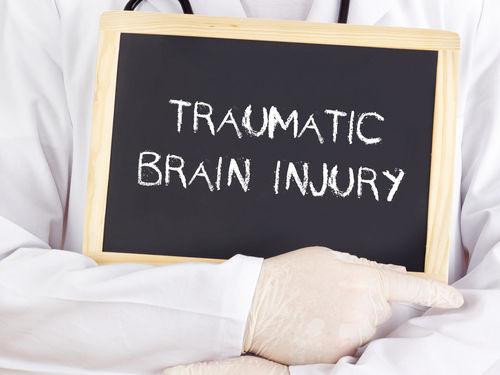
The human brain is truly miraculous. This organ weighs only 3.3 lb, holds 86 billion nerve cells, houses billions of nerve fibers, and is responsible for regulating blood pressure and breathing.
The brain also manages:
- Motor skills
- The ability to solve problems
- Judgment
- The ability to plan
- Attention
- Emotions
- Impulse control.
A traumatic injury to the brain can have a detrimental effect on an individual physically, emotionally or behaviorally, The brain injury can happen during birth or it may arise later in a motorcycle accident, automobile accident, or a similar traumatic event.
Traumatic Brain Injury (TBI) Facts and Causes
The sudden and violent trauma that can result in a TBI does not always include an open wound or a skull fracture. An individual who is injured might not even lose consciousness. While this all may appear innocuous, damage does occur when the brain collides with the skull. The collision of the brain with the skull can cause brain bruising, tearing of nerve fibers as well as bleeding. When a skull fracture occurs, a fragment of bone may penetrate the tissue of the brain. Traumatic brain injuries are a major cause of disability and helped contribute to 50,000 deaths in the United States in 2013.
The most common causes of TBI include:
- Falls
- Motorcycle accidents
- Motor vehicle accidents
- Gun violence
- Physical violence
The Symptoms of a TBI
TBI signs and symptoms may appear immediately after an injury or they may take weeks to make themselves known. It is important to note that symptoms may appear subtle and seem unrelated to the injury. The TBI symptoms listed below are not subtle and require the immediate attention of medical professionals:
- Confusion
- Mood changes
- Memory loss
- Fatigue
- An ongoing headache
- Increased sensitivity to light
- Increased sensitivity to sound
- Ringing in the ears.
The Long-term Effects of a TBI
There is mounting evidence that a traumatic brain injury can impact long-term health, including an increased risk of neurological and neurodegenerative disorders.
The sad truth is that a person who suffers a TBI may require rehabilitation that will vary in intensity depending on the severity of the injury. Therapy can include:
- Learning how to walk again
- Learning how to speak again
- Practice carrying out daily tasks.
Treatment may require a hospital stay or a specialized rehabilitative therapy center. It is likely that the services of a physical therapist, an occupational therapist, and other medical professionals will be required to help the victim of the TBI recover.
You Need Help
The brain injury attorneys from Diaco Law understand that you and your family never wanted to be in this situation. However, just like you need medical professionals who can offer the proper care, you likely need a personal injury attorney who understands medicine and the laws regarding brain injuries to speed your recovery.
There may be compensation owed to you that could ease the cost of medical care and aid your recovery and you need to seek it. Reach out to Diaco Law today at (813) 221-7978 or by using our contact form for a free consultation.